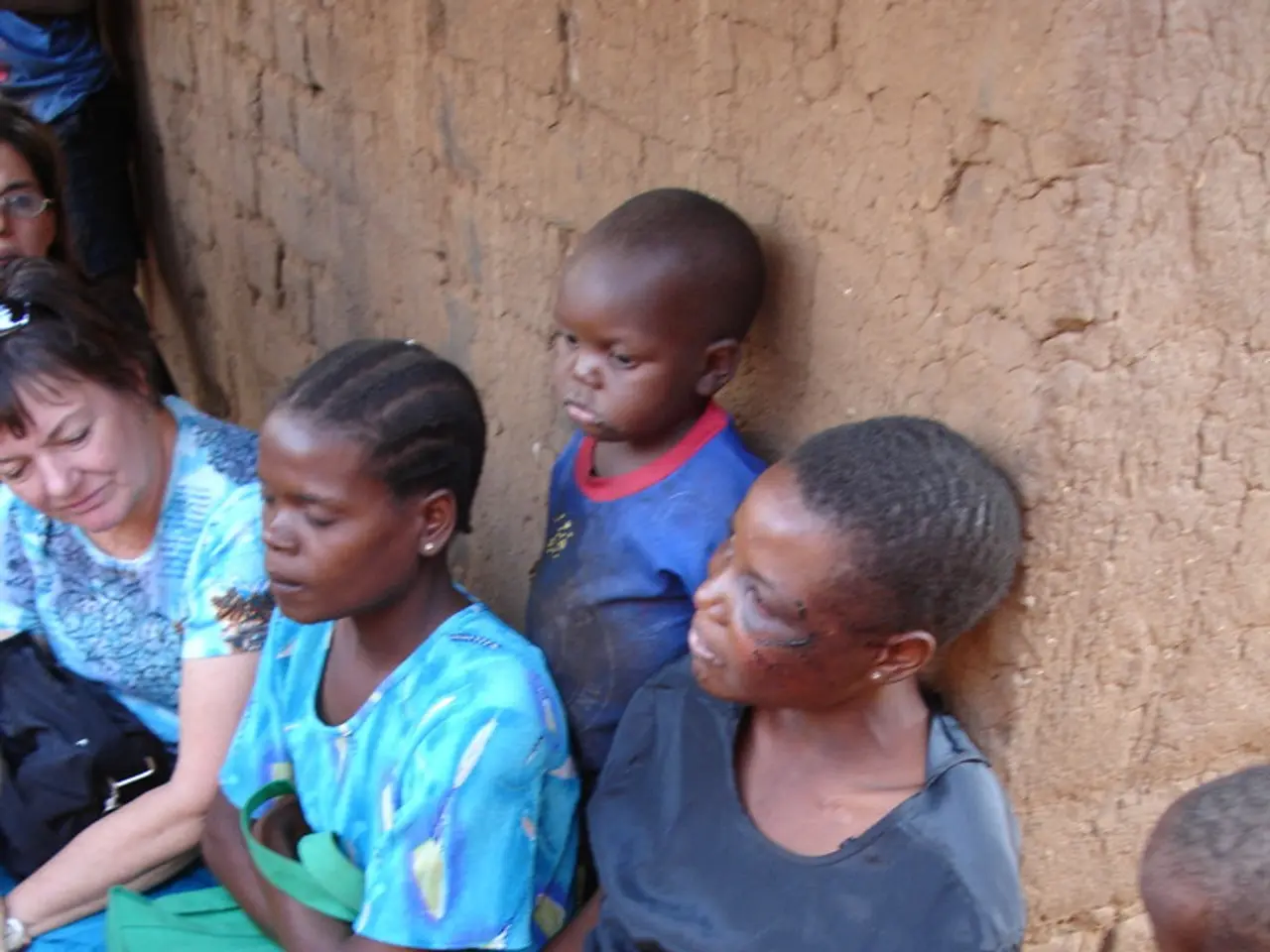Research Findings Indicate that Women More Frequently than Men Assert Eligibility for Child Allowances
In Germany, a significant gender disparity in applications for child sick leave has been observed, with women applying much more frequently than men. This disparity is largely attributed to traditional gender roles and the uneven distribution of childcare responsibilities.
According to an analysis published on ntv.de, women submitted around 296,000 applications for child sick pay in 2020, while men applied approximately 109,000 times. This translates to women accounting for approximately 70% of the applications for child sick pay in Germany. The ratio of days of child sick pay due for women to that for men in 2020 was approximately 2.8:1.
The health insurance company Barmer published data in Berlin showing this inequality in childcare responsibility. In 2020, around 648,000 days of child sick pay were due for women, while 229,000 were due for men.
The analysis does not provide any new information about the data published by Barmer on Friday. However, it does reveal that women were responsible for a larger portion of the days on which child sick pay was due in both years.
The research conducted during the COVID-19 pandemic also highlights that women feel more burdened by care work than men, which adversely affects their mental health more strongly. Women, especially those unemployed or working full-time, report greater childcare burdens than men in similar employment statuses. Men with childcare responsibilities often benefit mentally from their full-time employment, while women feel greater pressure and responsibility in balancing job and care duties.
Caregiving norms in Germany align with marked gender roles. Despite official policies like paid child sick leave (up to 15 days per child, 30 for single parents), women disproportionately assume the role of primary caregiver and thus more frequently use such entitlements. Unlike some countries with more equal leave distribution, German men take fewer such leaves, partly due to cultural expectations and part-time or full-time work differences.
The gender disparity in childcare sick leave applications reflects unequal caregiving expectations, social norms around gender roles, and the associated mental and emotional burdens that fall more heavily on women in Germany. However, the analysis does not include information on the impact of this imbalance on the workforce or the economy.
[1] Research conducted during the COVID-19 pandemic, source unspecified. [4] Data from the health insurance company Barmer.
- In the context of health-and-wellness, the research conducted during the COVID-19 pandemic shows that women, particularly those in full-time employment, often feel a greater care burden than men, impacting their mental health more adversely.
- Given the community policy of paid child sick leave in Germany, the significant gender disparity in these applications implies that women, more often than men, are assuming the role of primary caregiver, a reflection of unequal caregiving expectations and social norms around gender roles.
- To foster gender equality in vocational training and work-life balance, initiatives like extending vocational training programs for parents or promoting family-health awareness, such as the importance of equal childcare responsibilities, could be considered to alter these caregiving norms and address the health-and-wellness issues faced by women and their families. Additionally, women's health and parenting support services could be strengthened to better address the unique challenges faced by women in the workforce.




